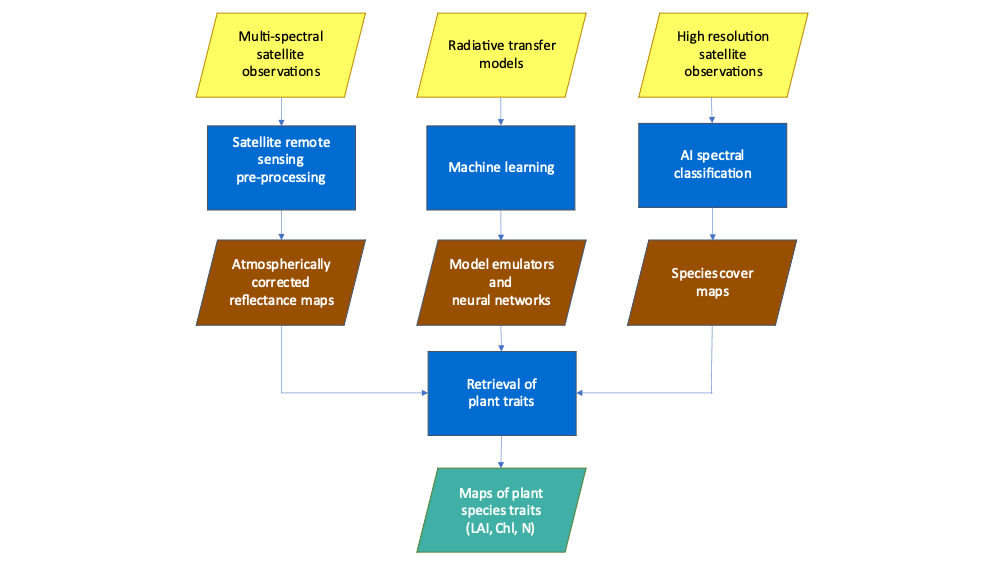Physiological traits of plant species (such as foliar chlorophyll, nitrogen and leaf area index, LAI) play a key role in biophysical and biochemical processes of plants and form the basis of emerging ecosystem functions. For instance, LAI is linked to primary productivity and therefore important for monitoring the bottom-up energy flow in terrestrial food-webs. Likewise, foliar chlorophyll, water content and nitrogen are linked to photosynthesis and evapotranspiration of plants, and therefore crucial for analysing drought susceptibility and carbon sequestration. Mapping and monitoring plant physiological traits therefore enables the quantification of potential impacts and pressures on ecosystem services and ecosystem functioning, e.g., water regulation, impacts of invasive species and provisioning of biomass and habitats for animals.
The SOPPHY vLab enables the mapping of plant physiological traits (e.g., chlorophyll, nitrogen and leaf area index) from high resolution and multi-spectral satellite imagery. This allows users to investigate specific pressures on ecosystem services and ecosystem functioning by analysing species and ecosystem dynamics at a resolution that is relevant for local management purposes.

Figure 1: Conceptual diagram of the SOPPHY vLab developed by LifeWatch ERIC – VLIC. Box shapes reflect either a workflow component (rectangular) or a data/model asset (trapezoidal). Box colours reflect the workflow components (blue) or the production level of the assets (yellow = raw, brown = intermediary, green = output).